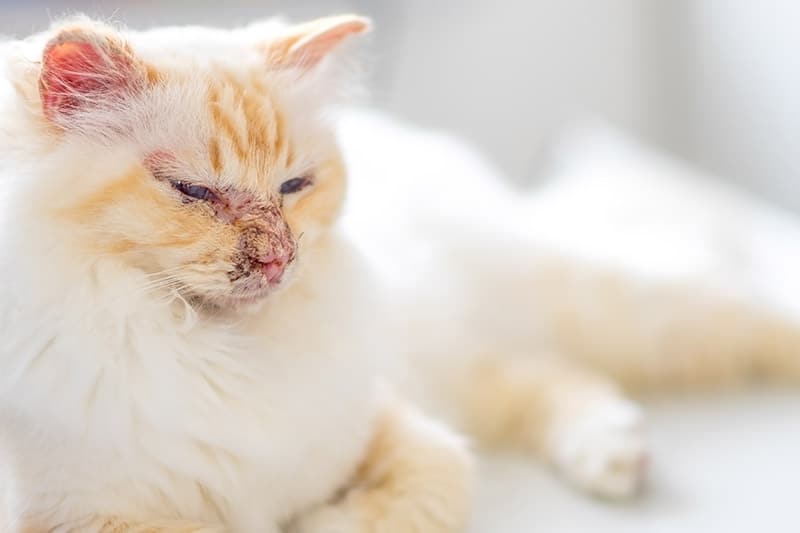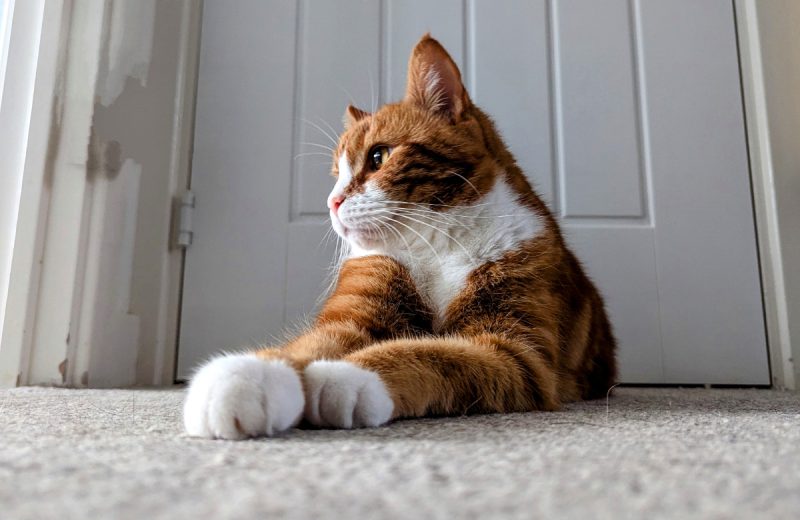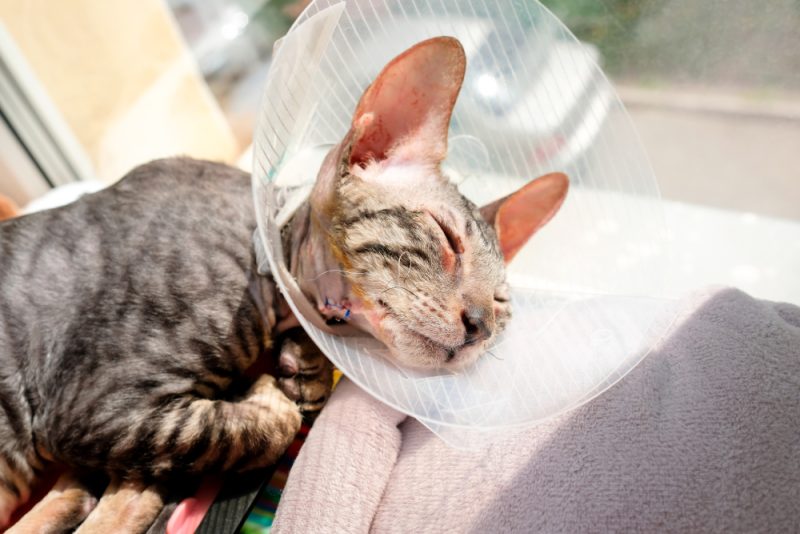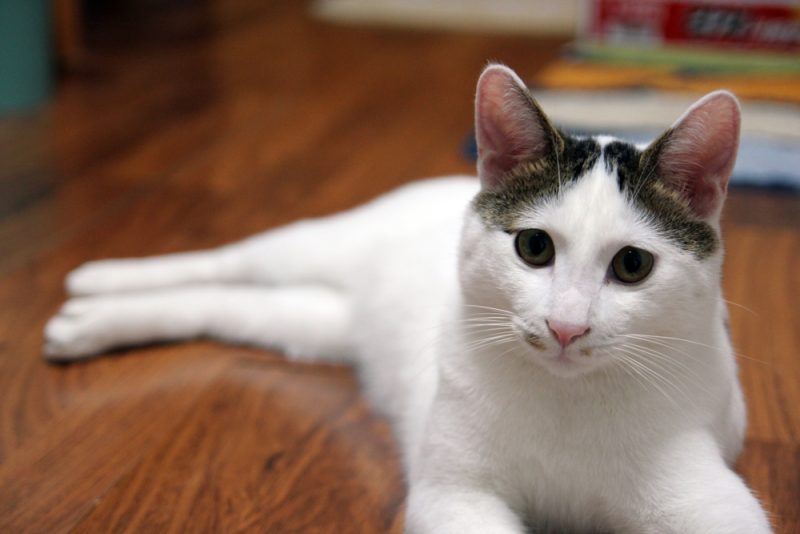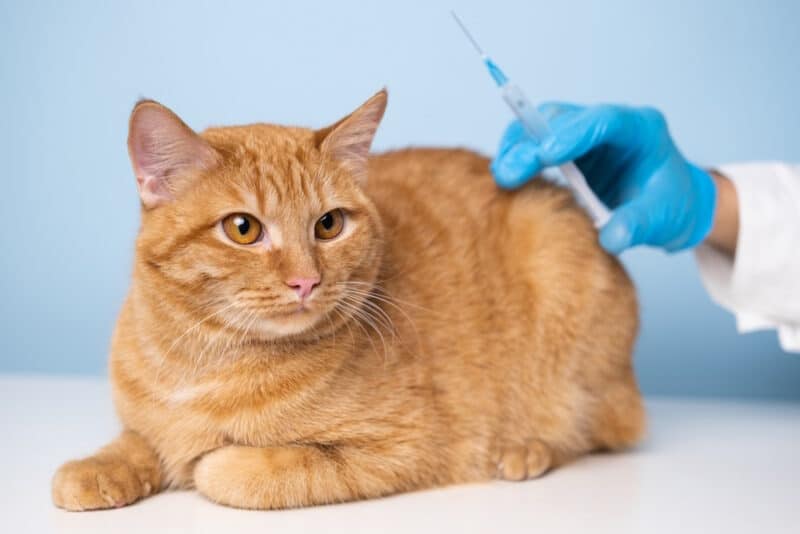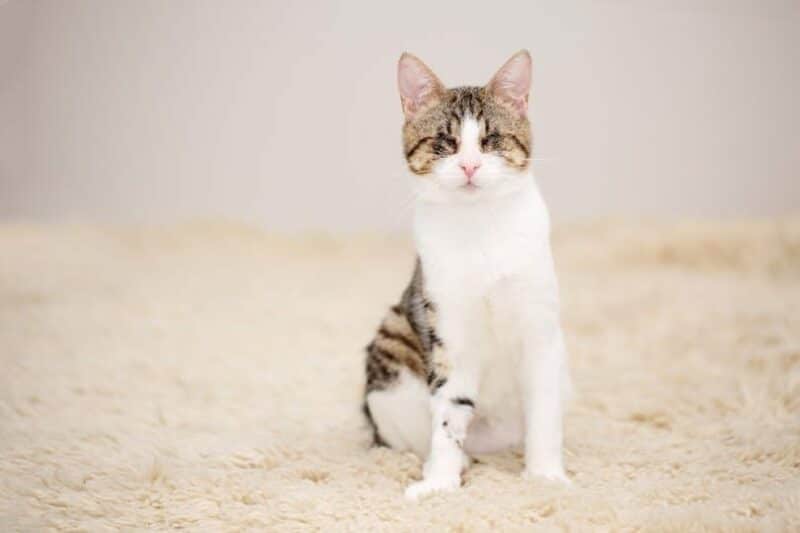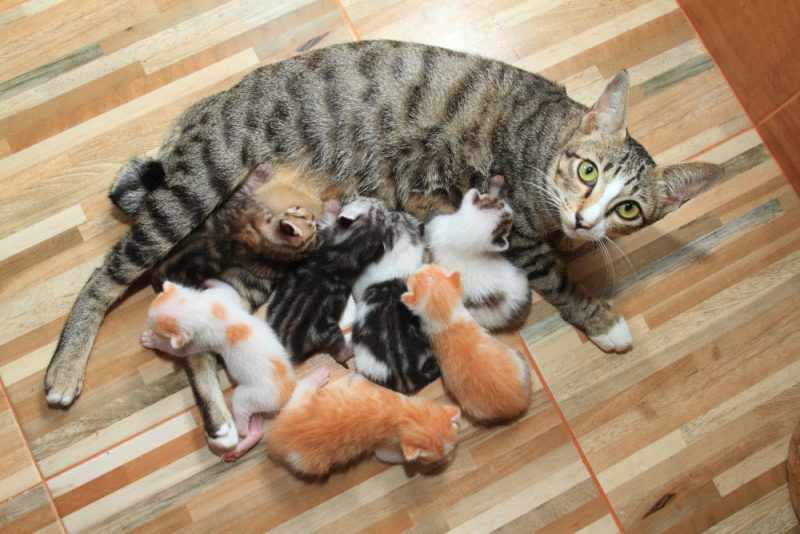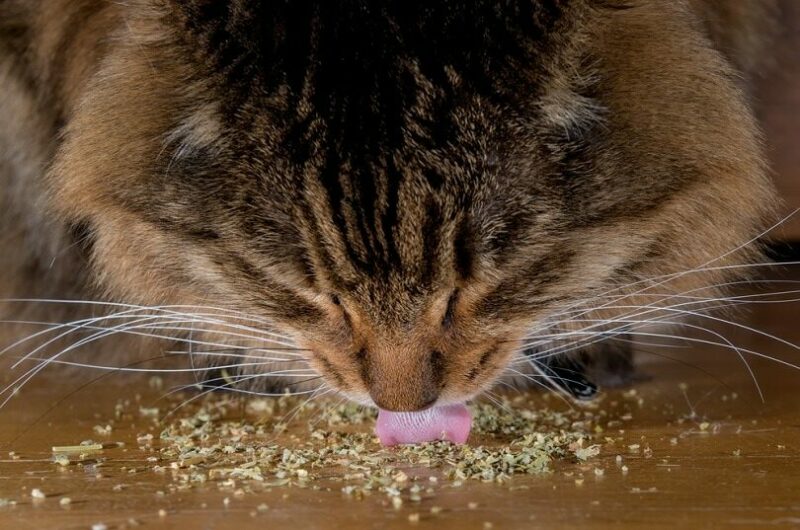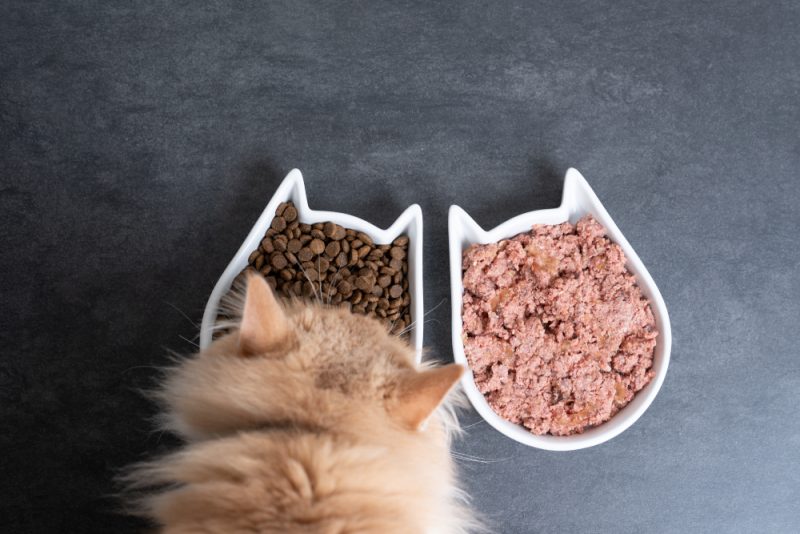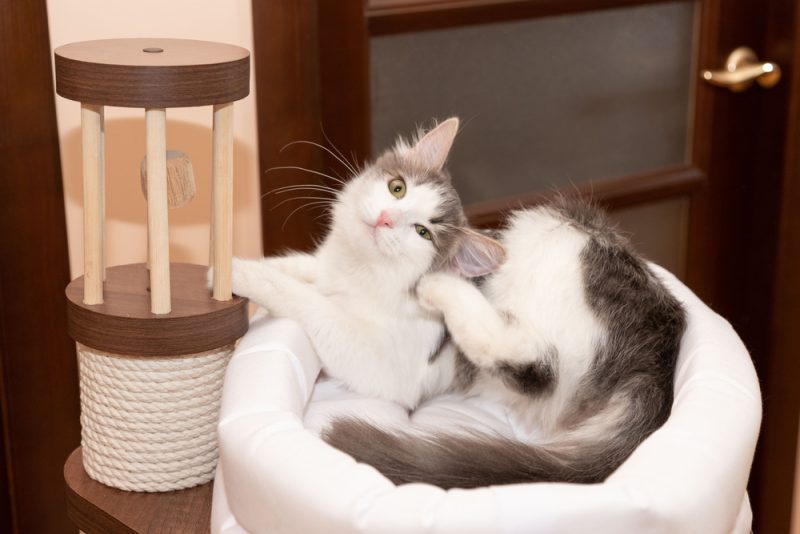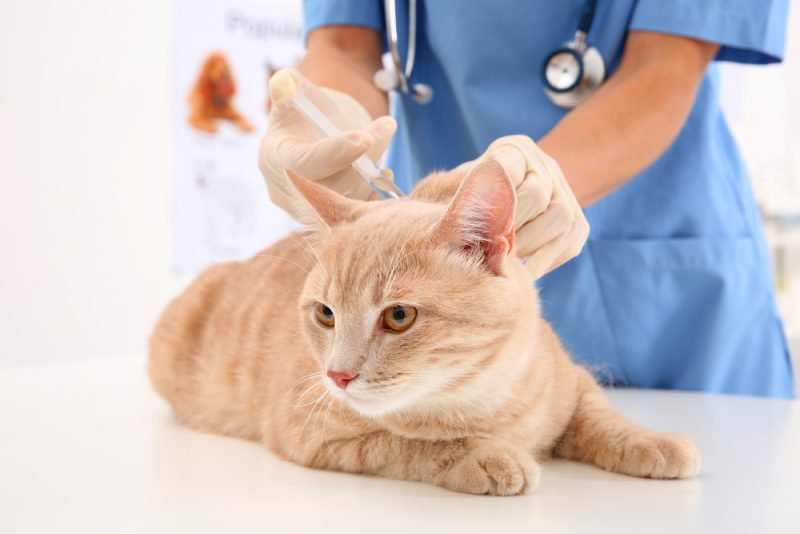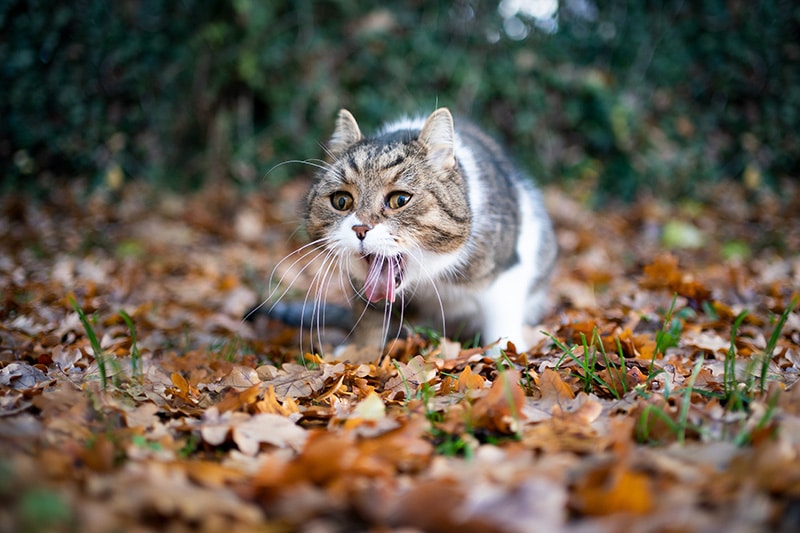Autoimmune disease is a relatively uncommon phenomenon seen in cats. Autoimmune diseases occur when the immune system malfunctions and produces an inappropriate response to its own cells. The immune system mistakenly interprets part of the cat’s body as a threat and attacks it.
Autoimmune diseases are complicated and can be extremely challenging to diagnose and treat. A variety of different cell lines and organs of the body can be affected, therefore clinical signs vary dramatically. Clinical signs are often generalized and non-specific, and not immediately linked to autoimmune disease. Cats can suffer from many different types of autoimmune diseases, some of which are life-threatening. If you see any clinical signs indicating that there is something wrong with your cat, it is important to visit a vet to have them checked out.

What is Autoimmune Disease in Cats?
Autoimmune diseases are disorders that affect and disrupt the healthy activity of the immune system. The immune system functions to protect the body against potential pathogens such as viruses and bacteria. Your cat’s immune system will send out specific cells to attack and destroy these pathogens as part of the normal immune response. When the autoimmune disease is present, your cat’s body attacks their own cells as well as pathogens causing the destruction of healthy, functioning tissue.
Much the same as humans, cats are capable of developing disorders that alter the functioning of their immune system. Autoimmune disease can affect any part of your cat’s body including internal organs and skin. There are many different types of autoimmune diseases in cats. Common examples include:
- Systemic lupus erythematosus
- Pemphigus
- Myasthenia gravis
- Immune-mediated hemolytic anemia
- Immune-mediated thrombocytopenia
- Inflammatory bowel disease
- Eosinophilic granuloma complex
- Immune-mediated polyneuropathy
- Immune-mediated polyarthritis
- Dry eye syndrome (DES)
Autoimmune diseases can be fatal for cats. They lower the body’s natural defenses and also attack healthy tissue in the body. They can have genetic components and can be inherited. They can be picked up in their environment in the form of viruses. Other causes can involve poor nutrition, toxins, cancer, and stress. Autoimmune disease in cats should be taken seriously. Cats with a diagnosed autoimmune disease that is deemed to be hereditary should not be bred under any circumstances.
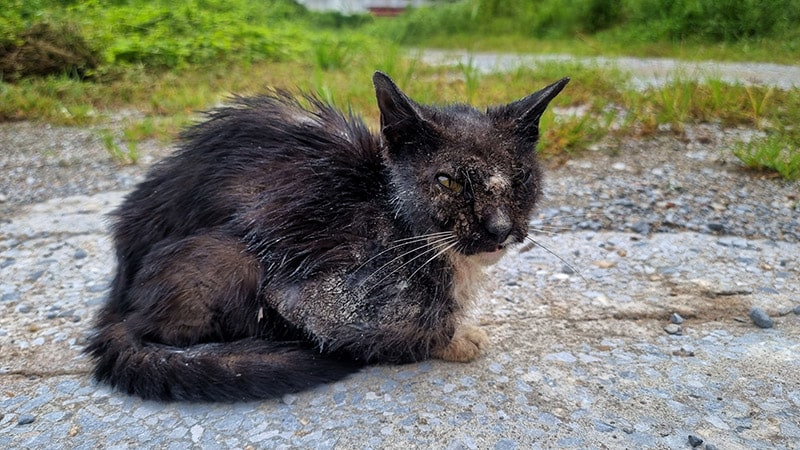
What are the Signs of Autoimmune Disease in Cats?
Autoimmune disease in cats can manifest in a variety of different ways. This is due to the fact that the disease has the potential to destroy all types of body tissue. Whichever cells in the body have been “labeled” to be attacked will determine the clinical signs witnessed by the owner. The difficulty in identifying the presence of autoimmune disease arises as clinical signs are often vague and non-specific.
This is why it is so important if you see any of the clinical signs below, to contact a vet immediately. This means that investigations can begin to take place as soon as possible.
Clinical signs to watch out for include:
- Lethargy
- Fatigue
- Weakness
- Pale gums
- Decreased appetite
- Weight loss
- Vomiting
- Diarrhea
- Black feces
- Lameness
- Swollen joints
- Rapid breathing
- Exercise intolerance
- Increased heart rate
- High temperature
- Unexplained bleeding
- Bruising
- Skin lesions
- Increased thirst
- Increased urination
- Poor coat condition
- Collapse
As you can see, this is an extensive list. A lot of these signs can be intermittent, meaning they may come and go. Your cat will seem to be absolutely fine one day and really struggling the next.
If you need to speak with a vet but can't get to one, head over to PangoVet. It's an online service where you can talk to a vet online and get the advice you need for your pet — all at an affordable price!

What are the Causes of Autoimmune Disease in Cats?
The underlying cause of any autoimmune disease is the cat’s own immune system. This can make treatment and management very challenging. The immune system deploys a search-and-destroy mission on itself due to a malfunction in signaling. The immune system produces antibodies against specific antigens. Antibodies combat infection and get rid of damaged and diseased cells. Usually, the body does not register its own antigens.
In autoimmune diseases, the body recognizes its own antigens as foreign and is programmed to target them. This leads to normal healthy tissue being attacked and destroyed.
The reason the immune system malfunctions can be related to viral infections, genetic predisposition, and hormonal influence. The exact triggers are not fully understood currently, and more research is required.
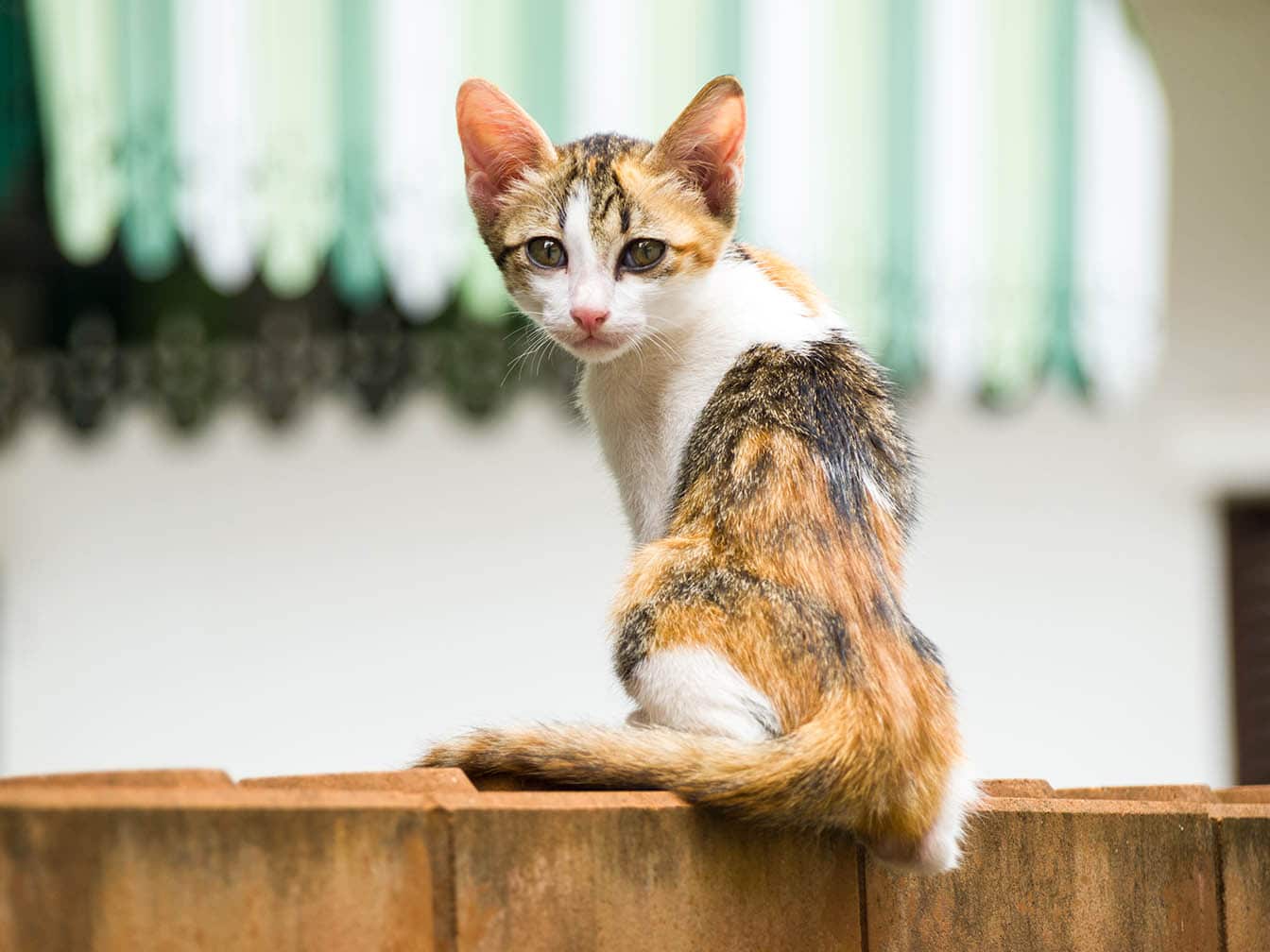
Diagnosis of Autoimmune Disease in Cats
Diagnosis of autoimmune diseases is often challenging. It is a diagnosis of exclusion, carried out by a vet and involving lots of tests. More common causes of any clinical signs are investigated to rule them out first.
The vet will begin by carrying out a full clinical exam and taking a detailed history from you. They will then perform appropriate diagnostic tests based on clinical signs reported and witnessed. This may include routine blood tests and urinalysis. They may take X-rays or perform an ultrasound scan. Biopsies of lesions can be taken, and bone marrow samples can be indicated. Prompt diagnosis is important for effective management.
How Do I Care for a Cat with Autoimmune Disease?
Treatment of autoimmune diseases depends on the type of autoimmune disease and the underlying cause. Treatment varies greatly as it is heavily influenced by these two factors. Generally, treatment involves immunosuppressive medication such as glucocorticoids (a type of steroid). This is to stop the cat’s immune system from attacking tissues. Often a large loading dose is administered and once the cat goes into remission, the dose is lowered gradually.
Supportive care is just as important to manage pain and clinical signs. Medications used to treat or manage autoimmune diseases include:
- Steroid drugs: Prednisolone and Methylprednisolone are the most common steroids used. They can be administered topically or orally depending on the disease and type of lesions present.
- Immunomodulation agents: Chlorambucil, Azathioprine, and Cyclosporine can all be used. Chlorambucil is an alkylating agent used in chemotherapy treatments. Azathioprine and Cyclosporine are immunosuppressive drugs. The side effects are more severe with these types of drugs.
- Pain relief: Depending on the type of disease and lesions present, some cats require pain medication. This can include Nonsteroidal Anti-Inflammatory Drugs (NSAIDs). NSAIDs interfere with the production of molecules that cause inflammation and trigger swelling and pain. These cannot be used in conjunction with steroids though. Opioids such as codeine, morphine, fentanyl, and buprenorphine can be used for severe pain. There are side effects to these drugs too. Gabapentin is an anticonvulsant drug and can be used to treat neuropathic pain is also an option.
- Antibiotics: If there are bacterial infections present, for example, secondary bacterial infections affecting skin lesions, antibiotics are indicated.
Depending on the type of disease, some cats may require whole or part blood transfusions.
Some cats may benefit from lifestyle changes or changes in their environment. For example, a cat with immune-medicated polyarthritis will benefit from weight loss if they are overweight for their size. They will be more comfortable with lower sides on litter trays and may need more padded beds to sleep on. Each case needs to be assessed on an individual basis.

Frequently Asked Questions (FAQ)
What is the most commonly seen autoimmune disease in cats?
One of the most common autoimmune diseases seen in cats is Pemphigus foliaceus. The cat experiences scabs, crusts, and ulcers on the skin near their eyes and ears, on their paws, and in their groin area. As it develops on their paws, the nail beds can be affected too.
Can cats make a full recovery from autoimmune disease?
There is no distinct cure for autoimmune diseases, however, there are effective treatment and management options to help control clinical signs in your cat. These will massively improve their quality of life and allow them to live fairly comfortably in most cases.
How common are autoimmune diseases in cats?
Autoimmune diseases in cats are relatively rare, and often diagnosis is by a process of elimination. More frequently seen diseases are ruled out first. Although uncommon, autoimmune diseases can make your cat very sick, so it is important to have them checked out if they have any worrying clinical signs.
What triggers autoimmune disease in cats?
The exact trigger for autoimmune disease in cats is currently not understood. Some theories suggest genetics or environmental factors play a part. Some drugs are thought to be involved in the development of diseases such as Pemphigus foliaceus.

Conclusion
Autoimmune disease in cats is the result of a hyper-defensive immune system that starts to attack its own body tissues as if they are pathogens. Clinical signs and treatment options for autoimmune diseases vary greatly depending on the disease process. Autoimmune diseases can be debilitating and life-threatening.
Often it is possible to manage the disease effectively and cats go on to lead relatively normal lives. If you have seen any signs to be concerned about, contact a vet immediately to arrange a check-up.
Featured Image Credit: stylefoto24, Shutterstock
